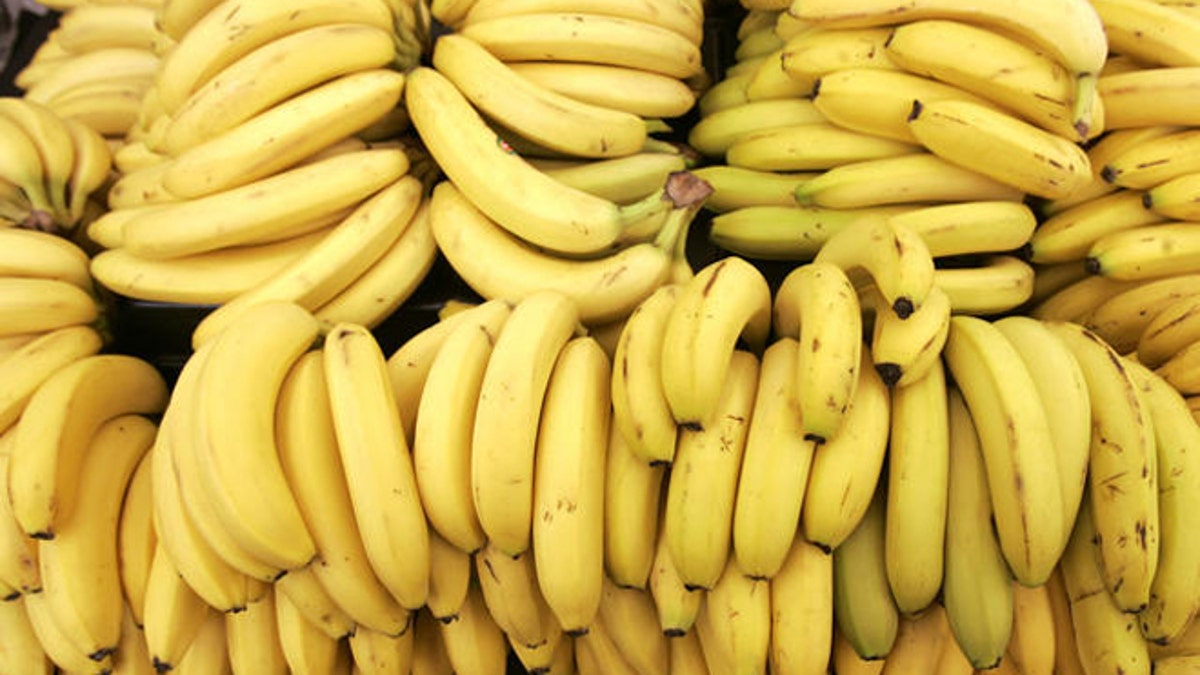
Bananas are shown at the K+G Food Mart in Detroit, Monday, May 8, 2006. (AP Photo/Carlos Osorio)
America’s love for bananas is killing crocodiles in Costa Rica.
OK, it’s actually the pesticides that are sprayed on the banana plantations that are killing Costa Rica’s wildlife, but researchers from Stellenbosch University in South Africa said that America’s love affair with the tasty produce (it’s the most consumed fruit in the U.S.) isn’t helping keep alive animals in the Central American country.
"In the past, I have witnessed and a lot of the locals have pointed out that there have been massive fish kills as a result of pesticide exposure in high levels," Paul Grant, a wildlife biologist at Stellenbosch University told NPR.
While Costa Rica – along with countries like Ecuador and Brazil – are perfect for growing bananas thanks to the warm climes and abundant rain, they are also perfect for the critters that like to eat them. Banana trees are also very susceptible to insect infestations and most plantations are in the tropics, "where there are a lot more kinds of pests and in abundance," said Chris Wille, the chief of sustainable agriculture at the nonprofit Rainforest Alliance.
Most of the banana plantations in Costa Rica lie in the northern part of country, where there is an abundance of steams and canals that flow into the Tortuguero Conservation Area that is home to a wide variety of fish and wildlife.
What the researchers at Stellenbosch wanted to find out was whether the pesticides that leaked into these waterways ended up affecting fish and the animals that prey on them, specifically the small spectacled caiman – an animal considered a threatened species by the International Union for Conservation of Nature.
Grant said the speckled caiman was a perfect choice because besides being at the top of the food chain it also can live for a long time.
After collecting blood samples from 14 different caimans – both close to the plantations and in the cleaner waters downstream – and testing them for 70 different pesticides, Grant found that the samples contained nine pesticides — two are currently in use and the other seven are "historic organic pollutants.” While these pesticides have been banned, they continue to exist in the environment and build up in the bodies of animals.
"What was revealing to me was the fact that the caimans that were near the banana plantations had not only higher concentrations of pesticides, but also they were in a poorer state of health relative to the caimans in more pristine, remote areas," said Peter Ross, an environmental scientist at the University of Victoria in British Columbia who authored the report.
Follow us on twitter.com/foxnewslatino
Like us at facebook.com/foxnewslatino
